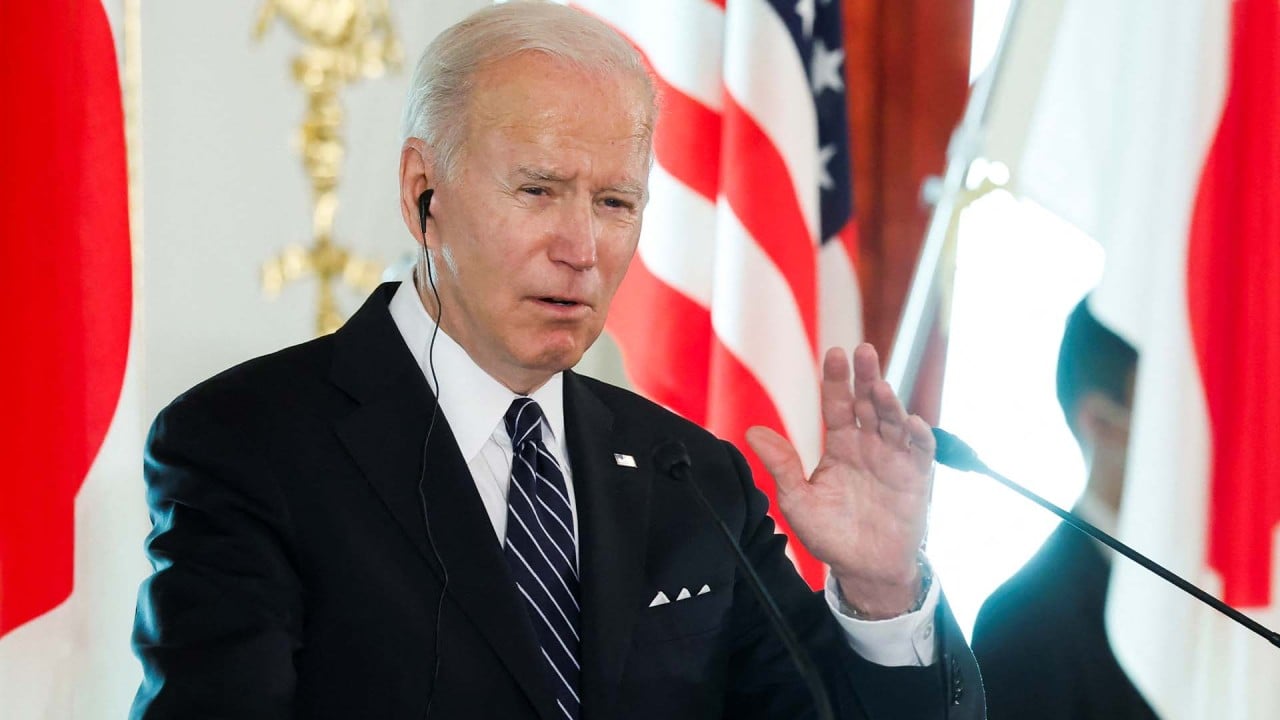Joe Biden’s comments about defending Taiwan ‘send signal to Beijing without changing US policy’
- Washington insists US policy has not changed after the president said the US had made a commitment to defend Taiwan if attacked by the mainland
- Observers say Biden has sent a ‘politically useful’ signal to Beijing without formally ditching its policy of ‘strategic ambiguity’

A White House official later walked back the remark and said it did not reflect a policy shift. But it is the latest in the string of mixed signals over Taiwan from Biden since he took office a little more than a year ago, including apparently contradictory statements over whether the island is independent.
The 1979 Taiwan Relations Act, which governs US relations with the island, does not require the US to step in militarily to defend Taiwan if mainland China attacks, but makes it American policy to ensure Taiwan has the resources to defend itself and to prevent any unilateral change of status in Taiwan by Beijing.
“Biden is trying to send a very clear message to China, despite all the advice from his foreign policy advisers, that – at least during his administration – the United States is committed to the defence of Taiwan,” said Tok Sow Keat, a lecturer at the University of Melbourne’s Asia Institute.
“That is something the Chinese need to take to heart – that this is the position of the current administration.”

